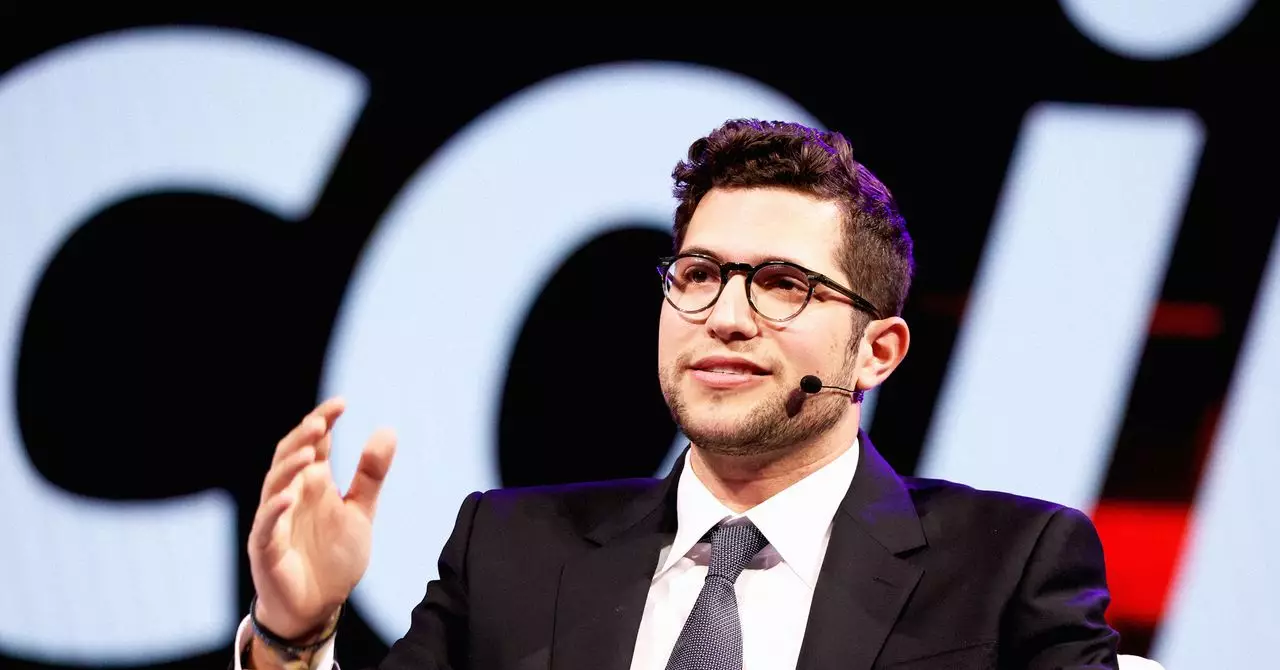In an unprecedented move, a major financial firm has begun capitalizing on the impending legal battles surrounding President Donald Trump’s controversial tariff policies. Cantor Fitzgerald, a titan in the world of investment banking, is now facilitating a novel financial product: bets on whether tariffs, imposed under the Trump administration, will be overturned in court. This development transcends traditional finance, blurring lines between legal uncertainty, political maneuvering, and aggressive investment strategies. It reveals a new dimension of how business and politics are intertwined, with companies and investors engaging in what amounts to legal speculation on the judiciary’s stance.
What makes this situation particularly provocative is the involvement of the firm’s leadership. Cantor Fitzgerald’s top executives are led by the sons of Howard Lutnick, a figure with close ties to U.S. political institutions. Lutnick himself, an influential figure in financial circles, has publicly supported tariffs as a means of boosting American revenue, claiming they could generate hundreds of billions of dollars. Yet, paradoxically, the firm is also betting that these tariffs will ultimately be declared unlawful—an internal contradiction that exposes the complex and often conflicting motivations within high-stakes financial markets.
The firm’s willingness to create a market for tariff refunds underscores the speculative nature of modern finance. By purchasing the rights to potential refund claims—money that companies could recover if tariffs are annulled—Cantor Fitzgerald is effectively betting on legal success against the current administration’s policy. This form of financial engineering, known as litigation finance, is gaining traction but is rarely so publicly aligned with political policies. The firm offers to buy these rights at a significant discount, taking an aggressive stance that signals confidence—or perhaps presumption—in the judiciary’s willingness to strike down policies supported by powerful political figures.
The Business of Betting on Legal Outcomes
This venture raises serious questions about the ethics and practicalities of profiting from legal disputes, especially those backed by political motives. Litigation finance involves investing in lawsuits by providing upfront capital in exchange for a portion of eventual settlements or judgments. Here, Cantor Fitzgerald’s strategy goes a step further by creating a financial market around potential legal rulings that could dramatically impact industries and corporations tied to tariffs.
While some see this as an innovative albeit risky financial innovation, many critics view it with suspicion. Investing in legal outcomes introduces a new level of commodification into the judicial process, where court decisions become commodities traded on open markets. This approach could incentivize or even influence legal battles, blurring the lines between legitimate legal remedies and profit-driven speculation.
Moreover, the magnitude of these transactions is noteworthy. With the capacity to buy rights worth hundreds of millions of dollars, Cantor Fitzgerald is positioning itself as a significant stakeholder in the future of tariff litigation. Such large-scale financial bets could influence perceptions of the judicial process, adding political pressure to legal proceedings and potentially shifting the weight of influence away from justice to profit.
Implications for Democracy and Economic Integrity
The involvement of a firm with close administrative ties to the U.S. government in betting on legal outcomes that directly impact national policy raises fundamental concerns. When financial institutions leverage political decisions for profit, it casts doubt on the integrity of both the legal system and the policymaking process. The question remains: does this kind of financial activity serve the public interest, or does it prioritize profit for a select few?
The scenario is further complicated by the fact that Lutnick, the firm’s founder and former leader, publicly advocates for tariffs as a revenue-generating tool. His firm, however, appears to be hedging its bets, betting against the government’s policies, which implies a level of dissonance and strategic calculation that could influence corporate behavior and political stability. The fact that Lutnick claims no involvement in the specific decision to back these legal bets emphasizes the compartmentalization often present in modern corporate governance, yet it also highlights the opaque nature of such financial innovations.
As the market for legal outcomes becomes more sophisticated and intertwined with political narratives, it is inevitable that wider questions about regulatory oversight, conflicts of interest, and the influence of money on democracy will come to the forefront. This unprecedented form of speculation underscores the need for clarity and vigilance from regulators and the public alike, who must remain critically aware of the powerful forces shaping economic and legal landscapes at the intersection of politics and finance.

